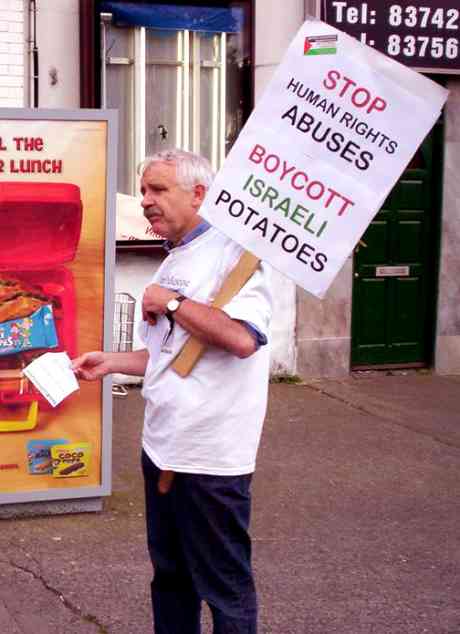young and poor, isolated from world economies, and blacklisted from conventional capital markets. Now, Israel has a successful, complex, and sophisticated economy, with private sector companies providing the majority of jobs for Israelis, and with billions of dollars in capital flowing in from abroad. These developments have come at an extraordinary pace, and many facts about Israeli companies are not widely known. Consider that: · 700 companies are listing their stocks on the Tel Aviv Stock Exchange. · The Tel Aviv Stock Exchange has outperformed many world markets over the last 5 years, including the key U.S. stcapita in Israel is about the same as in Canada. · Israel is the world’s No. 3 exporter of military technologies. · Among products designed or produced in Israel: the cardiac stent; Pentium MMX and Centrino computer chips; vision systems for F-16 pilots; ICQ instant messaging technology. · There are over 100 venture capital funds earmarking investments to Israeli start-up companies. · Israel is not only the sole democracy in the Middle East; it is the only country in the region with sophisticated, western-style capital, financial and banking systems. Israel’s GDP is larger than that of all its neighbors combined.
Has the perception of Israel’s economic stren
gth been obscured by media bias? Daily doses of vidxperience at growing its economy while simultaneously fighting a war. For 55 years, Israel has thrived and developed into a powerhouse, while working with one hand tied behind its back by relentless Arab assaults. Ironically, many Jewish investors hold investments in countries much less politically and militarily stable than I
Jack Cohen (Tesco) From Wikipedia, the free encyclopedia Sir John Edward Cohen (6 October 1898 – 24 March 1979), born Jacob Edward Kohen and commonly known as Jack Cohen, was a British businessman who founded the Tesco supermarket chain . He was born in Whitechapel in the East End of London, the son of an Avram Kohen, an immigrant Polish-Jewish tailor, and his first wife, Sime Zamremba. He began his working life as an apprentice tailor to his father but in 1917 he joined the Royal Flying Corps where he served as a canvas maker. Upon his demobilization in 1919 he established himself as a market stall holder in Hackney, in London's East End by purchasing surplus NAAFI stock with his demob money. He soon became the owner of a number of market stalls, and started a wholesale business. In 1924, he created the Tesco brand name from the initials of a tea supplier, T. E. Stockwell (formally Messrs Torring and Stockwell of Mincing Lane), and the first two letters of his surname. The first two Tesco stores opened at Becontree and Burnt Oak in 1931. By 1939, Cohen owned a hundred Tesco stores. Sometime around 1930 he changed his name by deed poll to John Edward at suggestion of his bank manager whose staff had trouble distinguishing between the many Jacob Cohens banking at the Mare Street branch in Hackney. In 1948, he witnessed the American trend for self-service supermarkets, and opened one of the first such shops in Britain. Around 1949, Cohen moved to Finchley, where he bought a block of flats called Moss Hall Court. He was married to Sarah Fox, daughter of an immigrant Russian-Jewish tailor. They had two daughters, Shirley and Irene, the former now Dame Shirley Porter. Cohen was knighted in 1969.
BOARD URGES BUYING OF ISRAELI PRODUCTS | | Sainsbury’s has become the latest target of the Boycott Israeli Goods (BIG) campaign which is holding demonstrations outside their stores protesting against the sale of Israeli goods. The Board is encouraging the community to identify which stores still sell Israeli products and make every effort to shop in these stores and purchase Israeli products. Major chains which are continuing to sell Israeli goods include Tesco, Marks and Spencer, Waitrose, Asda, Safeway, Morrisons and Costco.
Board Director General Neville Nagler commented: “The Board condemns these protests directed against Israel. It is hard to see how a boycott of Israeli goods will help to move forward peace negotiations in the Middle East. It is essential that these well-known chains do not succumb to boycott tactics. We are therefore urging members of the Jewish community, as well as the wider British public, to make every effort to support those stores which continue to sell Israeli products.” IPSC activists continued their boycott Israeli potatoes campaign with a picket outside TESCO Drumcondra, who continue to stock Israeli potatoes and other goods. 
Support Palestinian Human Rights, Boycott Israeli Potatoes
10 activists from the IPSC staged a two hour picket outside SuperValu on Aston Quay. They distributed 500 leaflets informing consumers about the presence of Israeli spuds on Irish shelves and asked shoppers to consider boycotting these potatoes and other Israeli produce in an act of solidarity with the Palestinian people and as a method of exerting pressure on the Israeli State to end its human rights abuses in, and brutal occupation of, the Occupied Palestinian Territories. + A B C D E | E cont. F G H I J K L M N | N cont. O P R S T U V W Y |
We think of the common potato as being part of Irish history. We may imagine that all potatoes sold in Irish shops are grown in Ireland. However, many Irish shops and supermarkets, including Dunnes Stores,TESCO and Marks & Spencer sell Israeli Potatoes, rather than Irish spuds. The profits from, and taxes imposed on, these goods help Israel to maintain and expand its 40-year old illegal occupation of Palestine. For example, the largest exporter of fruit and veg, Carmel-Agrexco, is half owned by the Israeli State.
|
|










Comments :
Post a Comment